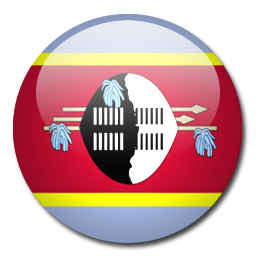International Headteacher
Menu
Population: 1.2 million (UN, 2010)
Capital: Mbabane
Area: 17,364 sq km (6,704 sq miles)
Major languages: Swazi, English (both official)
Major religions: Christianity, indigenous beliefs
Life expectancy: 50 years (men), 49 years (women) (UN)
Monetary unit: 1 Lilangeni = 100 cents
Main exports: Sugar, wood pulp, minerals
GNI per capita: US $2,630 (World Bank, 2010)
Internet domain: .sz
International dialling code: +268
Capital: Mbabane
Area: 17,364 sq km (6,704 sq miles)
Major languages: Swazi, English (both official)
Major religions: Christianity, indigenous beliefs
Life expectancy: 50 years (men), 49 years (women) (UN)
Monetary unit: 1 Lilangeni = 100 cents
Main exports: Sugar, wood pulp, minerals
GNI per capita: US $2,630 (World Bank, 2010)
Internet domain: .sz
International dialling code: +268
|
The kingdom of Swaziland is one of the world's last remaining absolute monarchies.
Its king rules by decree over his million subjects, most of whom live in the countryside and follow traditional ways of life. The power of the throne, however, has not gone unchallenged. King Mswati III, on the throne since 1986, is upholding the tradition of his father, King Sobhuza II, who reigned for almost 61 years and had scores of wives. King Sobhuza scrapped the constitution in 1973 and banned political parties. King Mswati has shown no enthusiasm for sharing power, but banned opposition parties and trade unions have been vocal in their demands for greater democracy and limits on the king's power. With peaceful change in neighbouring South Africa and Mozambique, Swaziland has been described as an island of dictatorship in a sea of democracy. Royalists have argued that democracy creates division, and that a monarch is a strong unifying force. A long-awaited constitution, signed by the king in 2005 and introduced in 2006, cemented his rule. Swaziland is virtually homogenous, most of the population being of the same tribe. Economically, it relies on South Africa, which receives almost half of Swazi exports and supplies most of its imports. Many Swazis live in chronic poverty and food shortages are widespread. Aids is taking a heavy toll. With an adult HIV prevalence of 26 percent in 2007, Swaziland has the most severe level of infection in the world. The virus has killed many workers and farmers and has created thousands of orphans. Life expectancy has plummeted. |
information provided by www.bbcnews.co.uk

